Search
Did you mean: Delos?
Summary 
Loading AI-generated summary based on World History Encyclopedia articles ...
Search Results
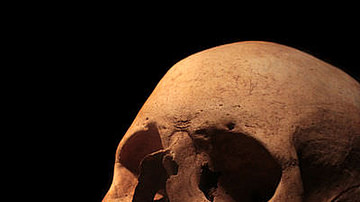
Image Gallery
A Gallery of Ghosts, Demons, Spirits & Monsters
Ghosts, demons, spirits, and monsters have been haunting humanity for at least 3,500 years. The so-called “Ghost Tablet” (c. 1500 BCE), from ancient Babylon, depicts a woman leading a ghost to the underworld and amulets from earlier periods...
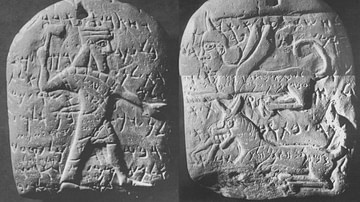
Definition
Arslan Tash Amulet
Dated to the 7th century BCE, the Arslan Tash amulet (AT1) was discovered in Arslan Tash, Syria and contains the writing of Phoenician, magic incantations. The limestone plaque includes a variety of features: incantations perceived to prevent...

Image
Winged Hittite Griffin-Demons
Relief orthostat (stone slab at the base of a wall) depicting two winged griffin demons, depicted as bird-headed with a human body. From Carchemish, Turkey. Dated to the Late Hittite period, 9-7th century BCE. Museum of Anatolian Civilization...
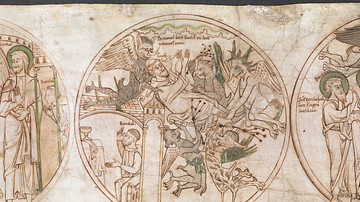
Image
Saint Guthlac Tormented by Demons
Saint Guthlac (c. 674 to 11 April 714) being carried aloft and whipped by demons. Roundel 7 of Life of Guthlac (the Guthlac Roll, or Vita Sancti Guthlaci), a manuscript written in the Benedictine abbey of Crowland, Lincolnshire, 1175-1215...
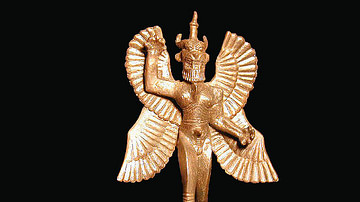
Definition
Pazuzu
Pazuzu is an Assyrian/Babylonian demonic god who was most popular in the first millenium BCE. He was the son of Hanbi (also Hanba), king of the demons of the underworld, and brother to Humbaba, the demon-god protector of the Cedar Forest...
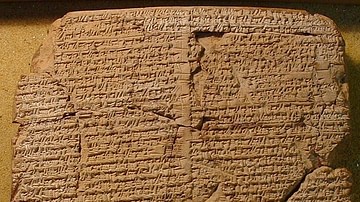
Article
Ancient Mesopotamian Ghost Spell
Medicine in ancient Mesopotamia was based on the belief that illness was caused by supernatural agencies and, although medicines were given and injuries treated, magical spells and incantations were also understood as effective. Among these...
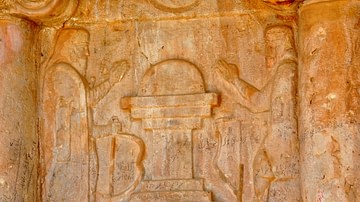
Article
Ancient Persian Gods, Heroes, and Creatures - The Complete List
The term 'mythology' comes from the Greek mythos (story-of-the-people) and logos (word or speech), meaning the spoken story of a people. Every civilization of the ancient world developed a belief system, which is characterized as 'mythology'...
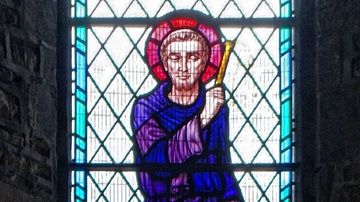
Definition
Guthlac of Crowland
Guthlac of Crowland (c. 674 - 11 April 714 CE) was an Anglo-Saxon saint from the Kingdom of Mercia. He is best known for his years spent as a hermit in the Fens region of the East Midlands. Guthlac was born into a noble Mercian family and...
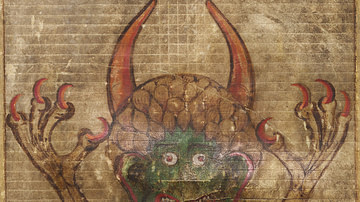
Article
The Origin of Satan
Satan, or the Devil, is one of the best-known characters in the Western traditions of Judaism, Christianity, and Islam. Surprisingly, this entity was a late-comer in the ancient world. Satan, as a totally evil being, is nowhere to be found...
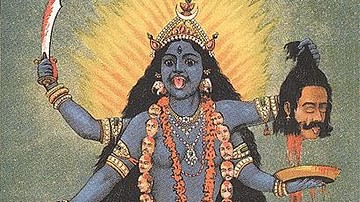
Definition
Kali
Kali is the Hindu goddess of death, time, and doomsday. She is often associated with sexuality and violence but is also considered a strong mother figure and symbol of motherly love. Kali embodies shakti – feminine energy, creativity and...